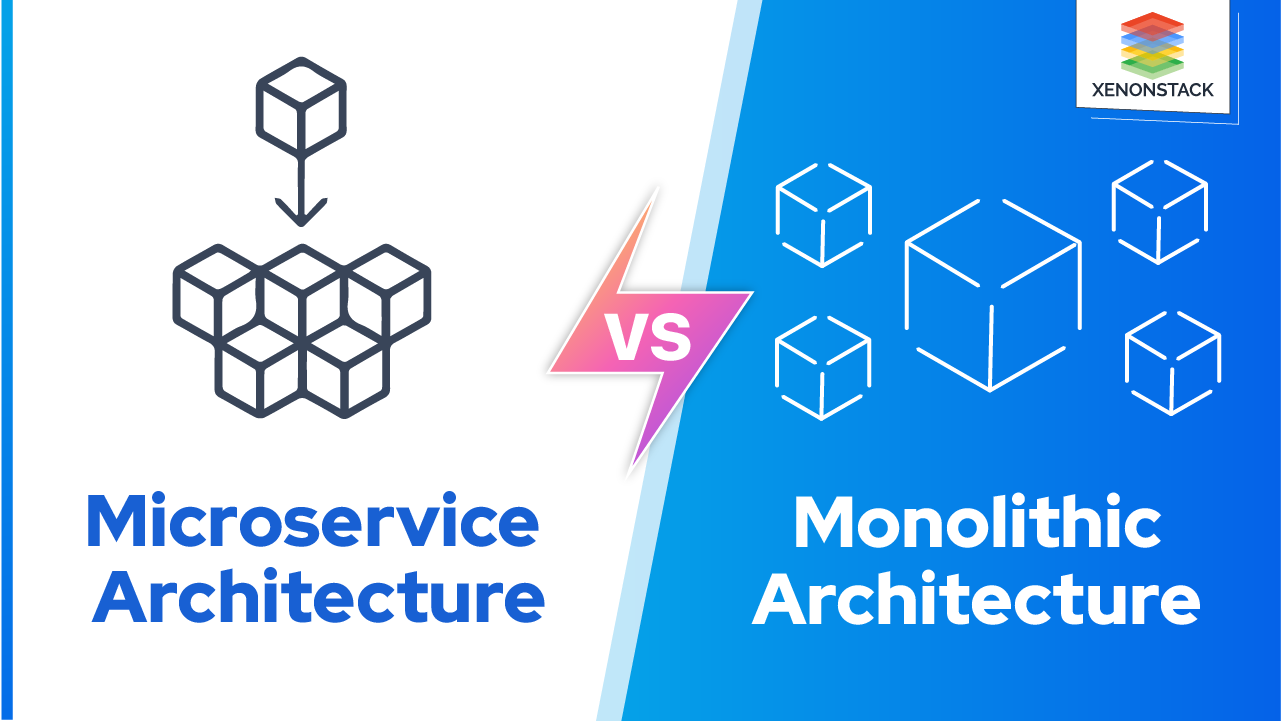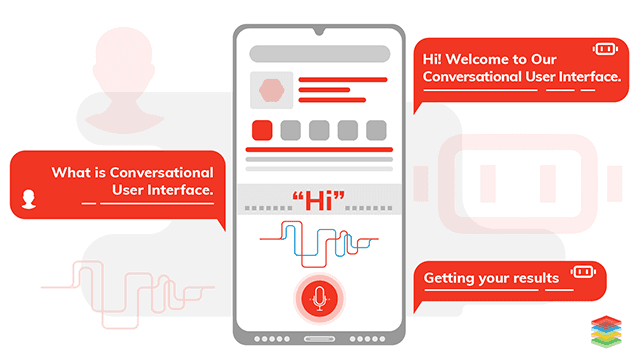
Why Platform Engineering is Revolutionizing Digital Transformation
In today's rapidly evolving technological landscape, Platform Engineering has emerged as a crucial pillar for organizations striving to achieve operational excellence and seamless digital transformation. The rise of cloud computing, microservices, and containerization has brought new opportunities while introducing complexities that traditional IT operations often struggle to manage. Platform Engineering addresses these challenges by providing an integrated and standardized platform that empowers users to focus on building and deploying applications while reducing operational and security risks.
At its core, Platform Engineering focuses on creating a unified ecosystem that enables collaboration, agility, and efficiency across diverse teams and technologies. By leveraging automation, orchestration, and containerization technologies, organizations can streamline processes, accelerate time-to-market, and enhance overall system reliability. Gartner predicts that by 2027, approximately 80% of engineering organizations will have dedicated platform engineering teams, highlighting the growing importance of this practice.
From DevOps to AutonomousOps: The Strategic Evolution of Platform Engineering
The Evolution Journey
Platform engineering has witnessed a remarkable evolution over the years. As technology advanced, the need for interconnected systems grew, leading to the development of networked environments. Platform engineering adapted to support these interconnected systems, evolving from traditional on-premises setups to cloud-based architectures. The shift towards cloud computing and virtualization further revolutionized platform engineering, enabling scalable and flexible infrastructure deployment.
During the DevOps era, the emphasis was largely on eliminating barriers between development and operations teams to facilitate quicker software delivery and enhance collaboration. While DevOps revolutionized the software development lifecycle, organizations soon realized the need for a more advanced approach to manage the complexities of modern IT environments.
This paved the way for AutonomousOps, a concept that leverages artificial intelligence, machine learning, and automation to create self-managing platforms capable of making intelligent decisions and optimizing operations without human intervention. AutonomousOps represents the next frontier in platform engineering, where systems are designed to continuously learn, adapt, and self-heal in response to changing conditions and requirements.
Defining Platform Engineering
Platform engineering is the process of designing and maintaining an internal platform that caters to the needs of developers and other stakeholders within an organization. It's a strategic approach that ensures consistency, scalability, and security across the software development lifecycle. The ultimate goal is to streamline application development and deployment by providing robust infrastructure, shared services, and automation tools.
Platform engineering involves a blend of DevOps, cloud architecture, and software engineering principles that create a self-service model for developers. With this model, developers can focus on coding without worrying about the underlying infrastructure. It aims to enhance security, compliance, cost-efficiency, and the speed of value delivery for development teams while fostering a shift in mindset towards product-oriented thinking.
Serverless allows developers to write code and build and run applications without any worries about managing the servers. Click to explore about our, Serverless Platform Engineering
Core Components and Elements of Platform Engineering
-
Infrastructure as Code (IaC): A fundamental practice in Platform Engineering that involves managing and provisioning infrastructure through code and automation rather than manually configuring individual hardware devices. Tools like Terraform and Ansible are widely used, allowing platform engineers to automate infrastructure management ensuring consistent and repeatable environments.
-
Automation and Orchestration: By automating repetitive tasks and workflows, teams can streamline operations, reduce human error, and increase productivity. Orchestration tools like Kubernetes help manage containerized applications, ensuring they are deployed, scaled, and operated smoothly.
-
Security and Compliance Integration: Platform engineering incorporates security controls into the platform, ensuring that security is baked in from the start rather than being an afterthought. This might involve automating vulnerability scanning, secrets management, and compliance checks.
-
Self-Service Capabilities: These empower users to independently provision resources and services within the platform without requiring manual intervention from IT teams. This enhances agility and speed and reduces the burden on IT operations, allowing them to focus on more strategic initiatives.
-
Observability and Monitoring: Effective platforms have built-in observability tools, allowing real-time insights into system performance, security, and user behavior. Solutions like Prometheus and Grafana help developers and operators track system health and respond to issues proactively.
A self-service layer that encompasses technologies and tools that allow developers to engage with their organization's delivery configuration independently. Click to explore about our, Internal Developer Platform
Implementing Platform Engineering: Infrastructure, Automation, and Scalability
Foundation Building:
-
Platform engineering creates and maintains the essential infrastructure for developing, deploying, and operating modern software systems
Architecture Design:
-
The journey begins with designing robust platform architecture that clearly defines infrastructure components and software stack elements
Key Infrastructure Components:
-
Servers, storage systems, and network configurations
-
Operating systems, middleware, and development frameworks
-
Containerization and orchestration environments
Automation Technologies:
-
Infrastructure as Code (IaC) tools like Terraform and CloudFormation
-
Configuration management with Ansible and Chef
-
Container technologies including Docker and Kubernetes
Cross-Team Collaboration: Platform engineers work closely with operations teams to:
-
Implement backup and disaster recovery plans
-
Perform regular updates and upgrades
-
Ensure high availability in production environments
Continuous Evolution:
-
The platform continuously adapts to changing requirements through monitoring, feedback loops, and iterative improvements.
Adopting cloud platforms helps to reduce costs, increase agility, and improve the performance and reliability of its IT systems.Click to explore about our, Cloud Platform Engineering
How Platform Engineering Empowers Users and Organizations
User Empowerment
-
Self-Service Capabilities: One of the key pillars of platform engineering is the creation of self-service platforms. These platforms allow developers to provision resources, deploy applications, and monitor performance without relying on operations teams. This autonomy improves developer productivity by reducing wait times for infrastructure and resource availability.
-
Standardized Environments: Platform engineering provides a consistent and standardized environment in which developers can work. Whether they are working on a small-scale microservice or a large monolithic application, the underlying infrastructure is the same. This reduces the friction that typically occurs when moving applications from development to production environments.
-
Simplified Tooling and Workflows: With platform engineering, the tools and workflows are curated and standardized, making it easier for developers to adopt new technologies without steep learning curves. These platforms offer pre-configured CI/CD pipelines, deployment templates, and monitoring dashboards that developers can use.
Benefits for Organizations
-
Enhanced Operational Efficiency: AutonomousOps simplifies operational workflows by automating mundane tasks like provisioning, scaling, and monitoring. This automation reduces manual intervention and minimizes human errors, leading to greater operational efficiency and smoother workflows.
-
Predictive Maintenance and Reduced Downtime: By leveraging predictive analytics and machine learning algorithms, AutonomousOps can anticipate potential issues before they occur. This proactive approach allows for predictive maintenance, minimizing downtime, and ensuring optimal system performance.
-
Improved Security Posture: Platform engineering enhances cybersecurity by continuously monitoring network activity and swiftly detecting anomalies or security threats. With automated threat detection and mitigation capabilities, systems can respond to security incidents in real-time, bolstering the organization's overall security posture.
-
Accelerated Innovation: By automating repetitive tasks and freeing human resources from operational duties, teams can focus on strategic initiatives and innovation. This transition empowers organizations to foster creativity, embrace innovative technologies, and maintain a competitive edge in a swiftly changing digital environment.
-
Governance and Compliance: Compliance can be automated and integrated into workflows, particularly important in industries with stringent regulations like finance or healthcare. Automated compliance checks throughout the CI/CD pipeline ensure all code deployed meets regulatory standards.
-
Cost Reduction: Platform engineering enables organizations to standardize how they manage and operate their software systems, which helps reduce overall operational costs. Adopting cloud platforms helps to reduce costs, increase agility, and improve the performance and reliability of IT systems.
Platform Engineering vs. DevOps and SRE
Let's delve into the distinctions between these related but distinct disciplines:
-
Site Reliability Engineering (SRE): A practice pioneered by Google that primarily focuses on maintaining software infrastructure to ensure it operates smoothly, reliably, and robustly.
-
DevOps: Encompasses a broader scope, involving the creation and management of diverse infrastructures across data centers, containers, and cloud environments. DevOps teams handle tasks like capacity planning, scalability, performance optimization, and delivering valuable, reliable software to customers.
-
Platform Engineering: Aims to optimize performance specifically for software development teams. Its objective is to enhance the software development process's efficiency and automate tasks for effective software delivery.
While these practices share commonalities, each has its distinct focus and objectives within the software development and infrastructure management landscape. Platform engineering can be seen as an evolution that builds upon the foundation laid by DevOps, providing more specialized and targeted solutions for complex modern infrastructures.
Tools and Technologies for Platform Engineering
The implementation of Platform Engineering and AutonomousOps relies on a variety of tools and technologies. Some of the most important ones include:
-
Kubernetes: An open-source container orchestration platform that plays a vital role in automating the deployment, scaling, and management of containerized applications.
-
Terraform: A powerful infrastructure as code tool that facilitates the provisioning and management of resources across various cloud providers.
-
CI/CD Pipelines: Fundamental for automating software delivery, from code changes to production deployment. These pipelines streamline workflows, expedite development cycles, and uphold code quality.
-
Crossplane: An open-source multicloud control plane that enables platform teams to build internal cloud platforms for application teams.
-
Gitlab CI: A continuous integration service that builds and tests software whenever code is pushed to a repository.
-
Backstage: An open platform for building developer portals, created by Spotify.
-
ArgoCD: A declarative, GitOps continuous delivery tool for Kubernetes.
-
Qovery: A platform that simplifies cloud deployments for developers.
Step-by-Step Guide: Transitioning from Legacy Systems to AutonomousOps
Transitioning to Autonomous Operations requires a strategic approach encompassing planning, execution, and continuous improvement:

Planning
The initial step involves comprehensive planning. Organizations must define goals, assess current infrastructure and processes, and outline necessary changes for achieving autonomy. Developing a roadmap that details key milestones, timelines, and resource needs is crucial. Engaging organizational stakeholders ensures alignment and commitment to the transition plan.
Execution
With a well-defined plan in place, the transition to AutonomousOps can begin. Implementing changes incrementally, starting with pilot projects or small-scale initiatives, allows teams to test new processes and technologies. Monitoring progress closely, gathering feedback, and making adjustments as needed ensures a successful transition. Fostering collaboration and cross-functional teamwork enhances efficiency and innovation throughout the process.
Continuous Improvement
Transitioning to AutonomousOps is a continuous journey of improvement. Organizations should embrace a culture of experimentation, learning, and adaptation. Regularly evaluating the effectiveness of new practices and technologies, gathering data-driven insights, and utilizing feedback loops for iterative enhancements ensures ongoing progress. Cultivating an agile and resilient mindset helps navigate challenges and leverage growth opportunities.
Real-World AutonomousOps Use Cases: Self-Healing Systems and Dynamic Scaling
Self-Healing Systems
-
Problem: A SaaS provider encountered challenges with manual monitoring, causing delays in issue resolution, leading to downtime and reduced customer satisfaction. Service disruptions due to manual remediation of critical failures resulted in revenue loss.
Solution: Implementing a self-healing system based on AutonomousOps helps in real-time monitoring, detects issues and anomalies, and restores services without manual intervention. Automated actions anticipate failures through data analysis and scale resources based on workload and performance metrics for optimal efficiency.
Automated Scaling
-
Problem: Organizations face challenges related to manual resource management, inefficient allocation of resources, and difficulties in responding quickly to fluctuating workload demands.
-
Solution: Implementing automated scaling involves deploying dynamic resource allocation mechanisms that adjust based on workload demands, ensuring efficient resource utilization and timely response to changing requirements.
Dynamic Resource Allocation
-
Problem: Companies face inefficient resource utilization, manual scaling processes, limited scalability, and an inability to respond to dynamic workloads. Static allocation methods lead to underutilization or overutilization of resources.
-
Solution: Dynamic Resource Allocation includes automated resource monitoring for CPU, memory, and network usage, predictive analytics for forecasting resource demands, and automated scaling mechanisms to adjust resources dynamically. This optimizes performance, reduces costs, improves scalability, and enhances infrastructure reliability.
Future Trends and Scope of Platform Engineering
The future trajectory of Platform Engineering and AutonomousOps is poised for significant evolution driven by rapid advancements in AI, ML, and cloud technologies:
-
Advanced Predictive Analytics: With the advancement of AI and ML algorithms capable of handling extensive data, predictive analytics will be pivotal in facilitating proactive decision-making and optimizing resources in autonomous systems.
-
AI-Driven Development Environments: The rise of environments that leverage machine learning to automate software development tasks, streamline workflows, and enhance collaboration will enable faster and more efficient software delivery.
-
Ethics and Governance: As autonomous systems become more pervasive and impactful, ensuring ethical AI practices, transparency, and accountability will be paramount. Creating strong governance frameworks and ethical guidelines will be crucial for establishing trust.
-
Integration with Generative AI: As Generative AI continues to reshape the landscape, the role of Platform Engineering in driving autonomous operations becomes increasingly vital for organizations striving for innovation.
These trends have profound implications. Platform Engineers will need to adapt by acquiring new skills in AI, ML, and cloud technologies. They will also play a crucial role in designing, implementing, and managing autonomous systems that are ethical, secure, and compliant with regulatory requirements.
Future of Platform Engineering: AI Integration and Emerging Technology Trends
Platform Engineering represents a paradigm shift in how organizations approach IT operations and software delivery. By providing developers with self-service capabilities, standardized environments, and automated workflows, platform engineering empowers users to innovate faster and more efficiently while significantly reducing risks associated with security, compliance, and operational resilience.
As organizations continue to embrace cloud-native technologies and move towards more agile, decentralized software development models, the role of Platform Engineering in driving autonomous operations becomes increasingly critical. Its combination of automation, security, and user empowerment makes it essential in today's complex IT environments.
Moving forward, Platform Engineering will evolve to support even more intelligent automation, leveraging AI and machine learning to optimize performance and predict failures before they occur. For organizations looking to stay competitive in today's fast-paced tech landscape, adopting platform engineering is not just an option—it's a necessity for unlocking technology's full potential in driving business success in the digital era.
Next Steps towards Platform Engineering
Talk to our experts about Next Steps towards Platform Engineering. Learn how industries and departments leverage platform engineering to streamline infrastructure, improve system scalability, and enhance developer productivity. Utilize modern tools and practices to optimize IT operations, automate workflows, and ensure seamless integration across environments for faster, more efficient deployment.




